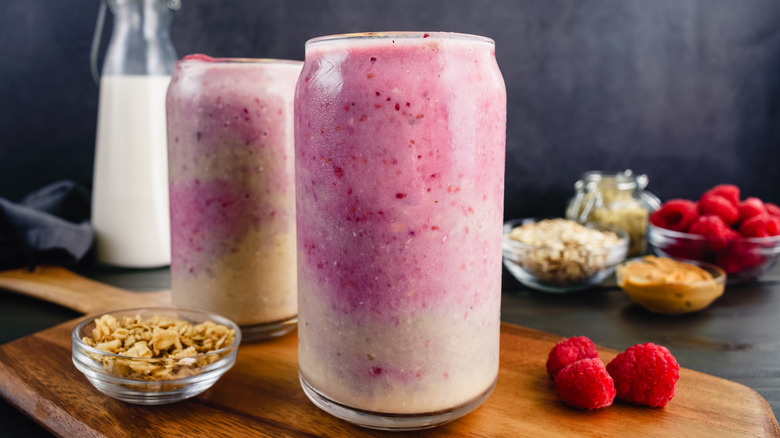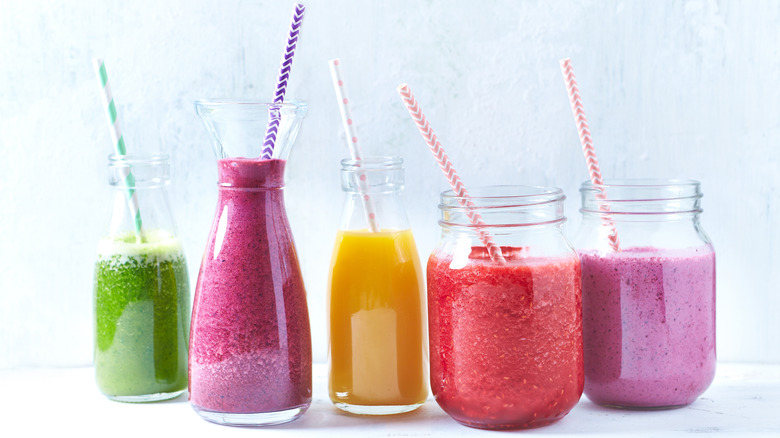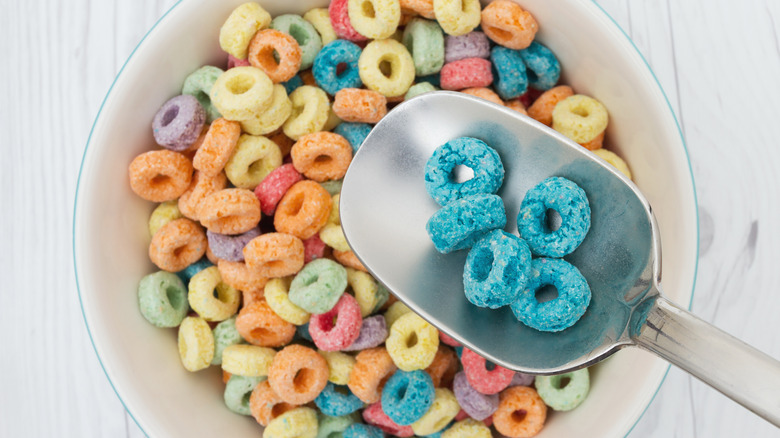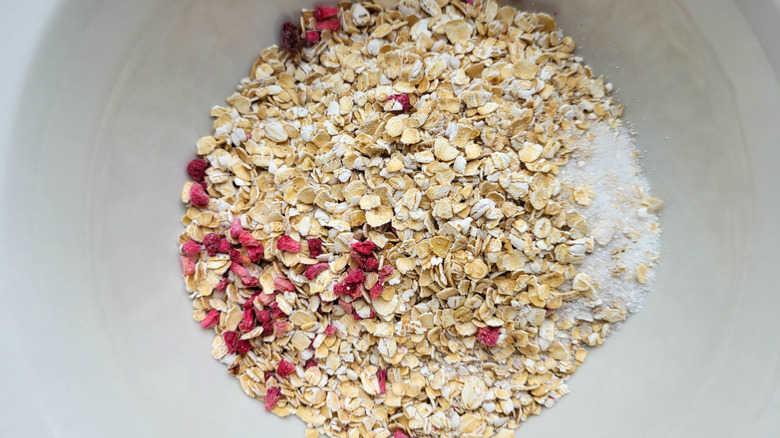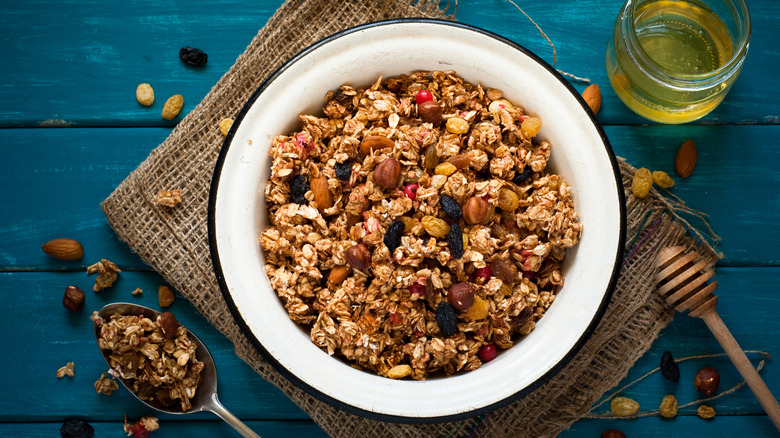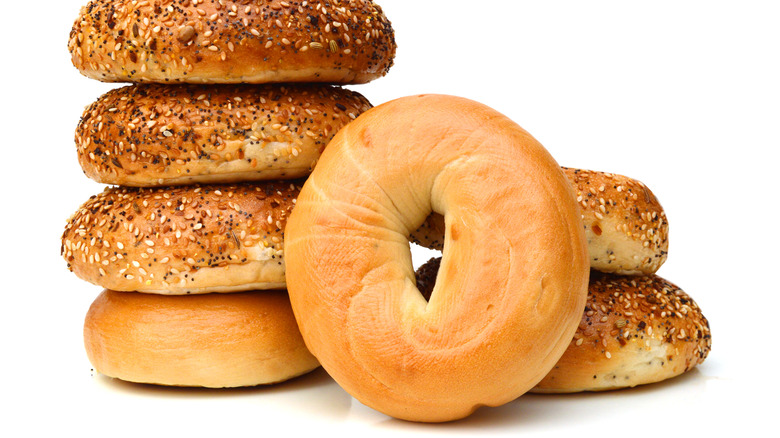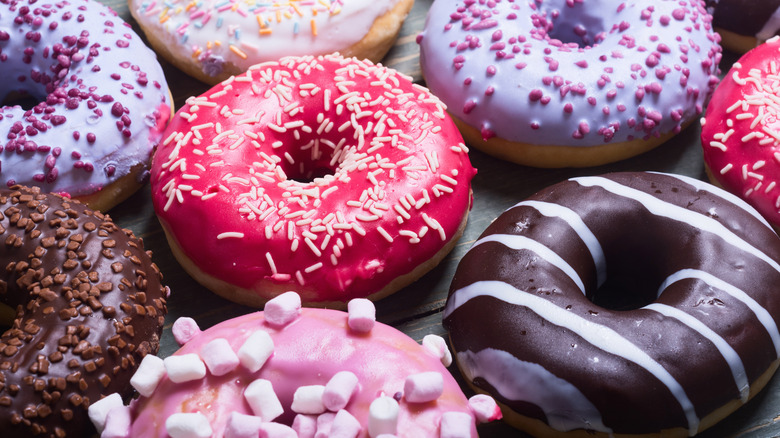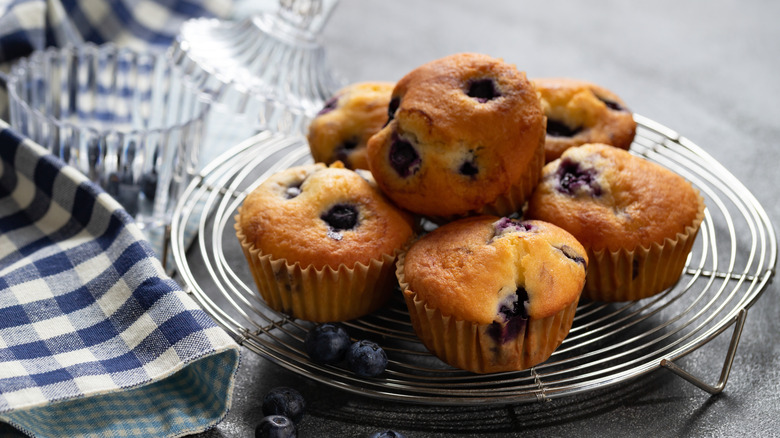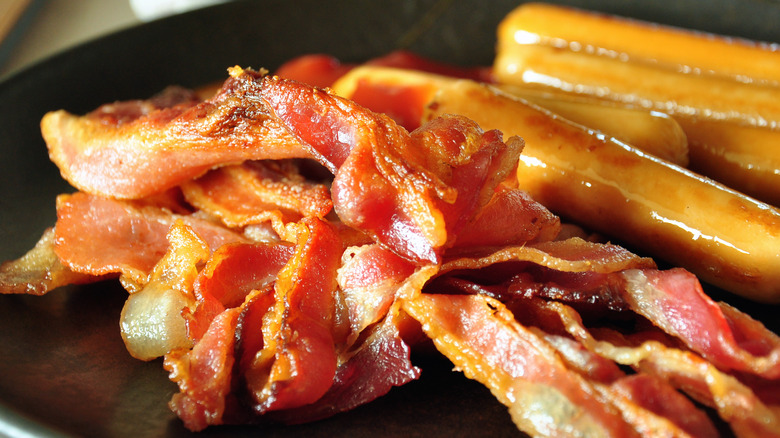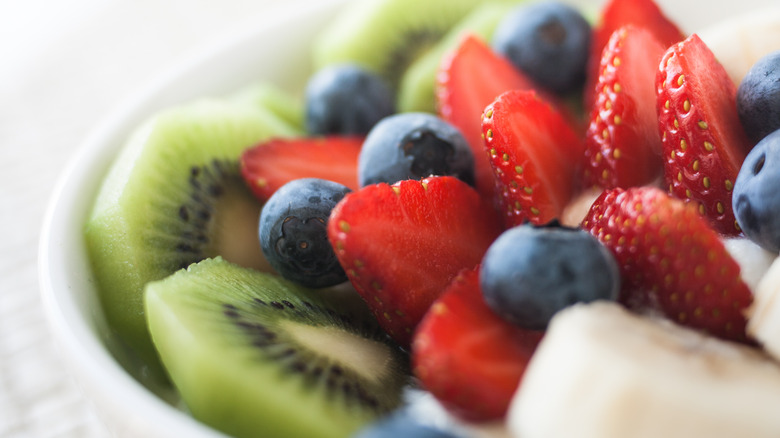Breakfast Foods You Should Avoid At All Costs
They say breakfast is the most important meal of the day. What you choose to eat in the morning can set the tone for the rest of your day. We live in a world with many food options and breakfast is no exception — the possibilities are endless!
So if you want to make the most out of your first meal, what foods should you avoid? Here's a list of breakfast foods to pass on, in favor of optimal health.
Smoothies
Smoothies may seem like a great breakfast choice because they are loaded with lots of fruit. And fruit is healthy, right? However, according to the British Heart Foundation, your smoothie might be packing more sugar than you think. "If you blend fruit, the natural sugars are released from within the cell walls of the fruit and become free sugars," the foundation states. "Free sugars include any added sugars (including honey and maple syrup) and are the kind we should all be cutting down on to protect our teeth [and] maintain a healthy weight."
But there's another potential downfall: breakfast in liquid form may not satisfy your hunger. A study from Purdue University found a distinct difference in satiety between solid and liquid foods. Despite all the fruits and veggies blended in your smoothie, you may find yourself reaching for more snacks to satisfy a lingering hunger in your belly.
Cereal
The cereal aisle at the grocery store is filled with plenty of options to fill your bowl, but don't be fooled by the colorful packaging. Scientists and doctors warn of the consequences of a diet high in sugar, and one major sugar bomb is cereal. Healthline reports, "Starting the day with a high-sugar breakfast cereal will spike your blood sugar and insulin levels. A few hours later, your blood sugar may crash, and your body will crave another high-carb meal or snack, thus creating a vicious cycle of overeating."
The article goes on to point out that even though cereal brands tout health benefits, sugar is a leading ingredient in this processed food. With heavy marketing towards children, parents are especially susceptible to purchasing cereal for their family. To avoid a Froot Loop fail, skip this aisle completely when shopping at the grocery store.
Instant oatmeal
Pre-mixed oatmeal is a seemingly healthy option. It is also quite portable and simple to make: just add hot water. Some varieties even have dried fruit included to make is seem more healthy. Unfortunately, like cereal, these packets are often loaded with sugar — and even the pre-portioned oats have lesser benefits.
Dietitian Leslie Beck wrote for The Globe and Mail that, "although they're convenient, most brands of instant oatmeal have added salt and sugar. Look for a brand that's low in sugar — ideally unflavoured or no added sugar — and low in sodium." Beck continued to explain that another pitfall of instant oatmeal (even the unsweetened kind) is that it has an increased glycemic index compared to large flake and steel cut oats. This matters because, as Beck wrote, "Studies show that a diet based on high glycemic food is linked with a greater risk of developing type 2 diabetes."
Granola
It might surprise you to know that granola products are, as the New York Times reports, a billion dollar industry. But, don't let those dollar signs fool you into thinking that granola or granola bars are a suitable breakfast choice.
Some granolas can actually contain more sugar than a donut or a cup of ice cream. As dietician Andy Bellatti, told the New York Times, "At its most basic level, granola is just super sweet, crunchy oatmeal. Apart from some specialty brands, you can't find unsweetened granola." Sadly, most major brands are loaded with sugar and are not healthy breakfast options.
Bagels
Perhaps nothing says breakfast more than a bagel. That dense, chewy dough seems like a great option, especially if you wake up feeling famished. Even though you may feel full from a bagel, the sad truth is that they contain little nutritional value and your body will process what's left, as sugar.
SFGate breaks down the facts, saying, "A 6-inch bagel contains 66 grams of carbohydrates and almost no fiber, protein, or fat. This high amount of carbohydrate is equivalent to that found in more than four slices of bread and accounts for more than 78 percent of the 337 calories it provides." Unless you are an athlete, your body won't burn off that excess sugar and you may gain weight over time, if you eat bagels regularly. Give this dough a hard no.
Donuts
The donut is as synonymous with office culture as the water cooler. Yet this sugary treat won't do you any favors for breakfast. Like bagels, donuts are loaded with sugar and offer little nutritional substance. This fried goodie is also packed with trans fat and another sneaky additive: sodium.
According to SFGate, "A package of mini donuts contains six of the treats, and if you eat them all, you'll consume between 250 and 360 milligrams of sodium, depending on what flavor you've chosen." Too much salt in your system will cause your body to retain fluids, creating extra stress on your heart. Do your body a favor and grab an apple instead.
Muffins
Breakfast that's in the shape of dessert? Not your best bet. Take muffins for instance. They look an awful lot like cupcakes and are loaded with sugar and fat.
The American Institute for Cancer Research (via NBC offers some real numbers, reporting, "Most [muffins] contain from 11 to 27 grams of total fat. Of that total, 2 to 8 grams are saturated fat." Grabbing a muffin at your local Starbucks seems like a great on-the-go option, but it will only lead to sugar crashes and eventually, your very own muffin top.
Bacon and sausage
If you want to avoid the sugar bonanza packed into so many common breakfast foods, it might make sense to seek more proteinaceous options like sausage or bacon. Sadly, most breakfast meats are highly processed and are not heart healthy options.
According to Authority Nutrition, breakfast meats contain compounds known to cause diseases and also contain excessive amounts of sodium. Processed meats have also been linked to high blood pressure and cancer. Harvard researchers have discovered that every 50g serving of processed meat you eat per day raises your heart disease risk by 42 percent.
Healthy alternatives
By this point, you may be wondering what you can eat for breakfast. Fear not, there are plenty of healthy options available that are quick, easy, and will leave you feeling satisfied. If you love cereal or prepackaged oatmeal, you can replace these options with steel cut oatmeal. Steel cut oats are packed with B-vitamins, calcium, protein, and fiber. And you can add fruit, nuts, or honey for additional flavor and nutrients.
Greek yogurt is another great option that will leave you feeling full from its protein content. Just make sure to buy the plain flavor to avoid any unnecessary sugar. If you do have a sweet tooth and need a fix in the AM, fruit can satisfy your craving. Add it to your oatmeal or yogurt, or eat it alone. If you want to amp up your protein intake, eggs are the perfect option, and you can cook them up in a variety of different ways.
Good breakfast, good life
Sugary, processed, breakfast foods will leave you feeling tired and hungry and can have severe long-term consequences for your health. Avoid foods with lots of sugar, trans fats, and carbs, and instead, reach for whole foods high in nutritional value.
Consuming the right foods in the morning will kick-start your day and set you up for success in both diet and energy. Eating the right foods in the morning will nourish you throughout your day, and ultimately, your life.
